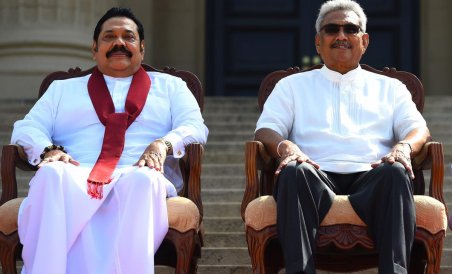
Sri Lanka’s cabinet has approved a new constitutional amendment that will see the presidential office of Gotabaya Rajapaksa expand its role and the scaling back of constitutional checks and balances on executive power.
The proposed 20th Amendment to Sri Lanka’s constitution, which is to be debated by Sri Lanka’s parliament in the coming days, was gazetted on Wednesday evening. Attorney General Dappula de Livera remarked that in order to be enacted it will require a two-thirds majority in parliament - a requirement the Rajapaksa regime achieved in last month’s parliamentary polls.
Changes under the proposed amendment have drawn widespread criticism, as the Sri Lankan government looks to replace the current ‘Constitutional Council’ with a weakened ‘Parliamentary Council’, expand presidential powers and broadens presidential immunity from prosecution.
Amongst the other changes proposed are the removal of “promoting national reconciliation and integration” as a duty of the president, the president granted the power to “assign to himself any subject or function”, the power to be able to remove the prime minister and to dissolve parliament after one year.
“in the event of any inconsistency between the Sinhala and Tamil texts of this Act, the Sinhala text shall prevail,” it added.
See the full text of the proposed amendment here.
“The 20th amendment will revert back Executive Presidency to JR Jayawardena's original design of the institution in 1978,” commented Jaffna based attorney Kumaravadivel Guruparan.
“The principal changes proposed by the Twentieth Amendment Bill seek to remove the checks and balances on the executive presidency,” said the Centre for Policy Alternatives, calling the Parliamentary Council "a mere a rubber stamp of the executive, with no genuine deliberative role envisaged for its members”.
“Moreover, CPA notes that the opportunity for citizens to challenge the executive actions of the President through fundamental rights applications has been removed, suggesting that the President is above the law… These fundamental changes to the constitutional separation and balance of powers will seriously undermine the accountability of government, and pose a significant challenge to existing democratic norms embodied in the Constitution.”
See more from the CPA here.
“Authoritarianism did not start with the Rajapaksas in Sri Lanka and will not end with the Rajapaksas either,” Guruparan concluded.
We need your support
Sri Lanka is one of the most dangerous places in the world to be a journalist. Tamil journalists are particularly at threat, with at least 41 media workers known to have been killed by the Sri Lankan state or its paramilitaries during and after the armed conflict.
Despite the risks, our team on the ground remain committed to providing detailed and accurate reporting of developments in the Tamil homeland, across the island and around the world, as well as providing expert analysis and insight from the Tamil point of view
We need your support in keeping our journalism going. Support our work today.
For more ways to donate visit https://donate.tamilguardian.com.

